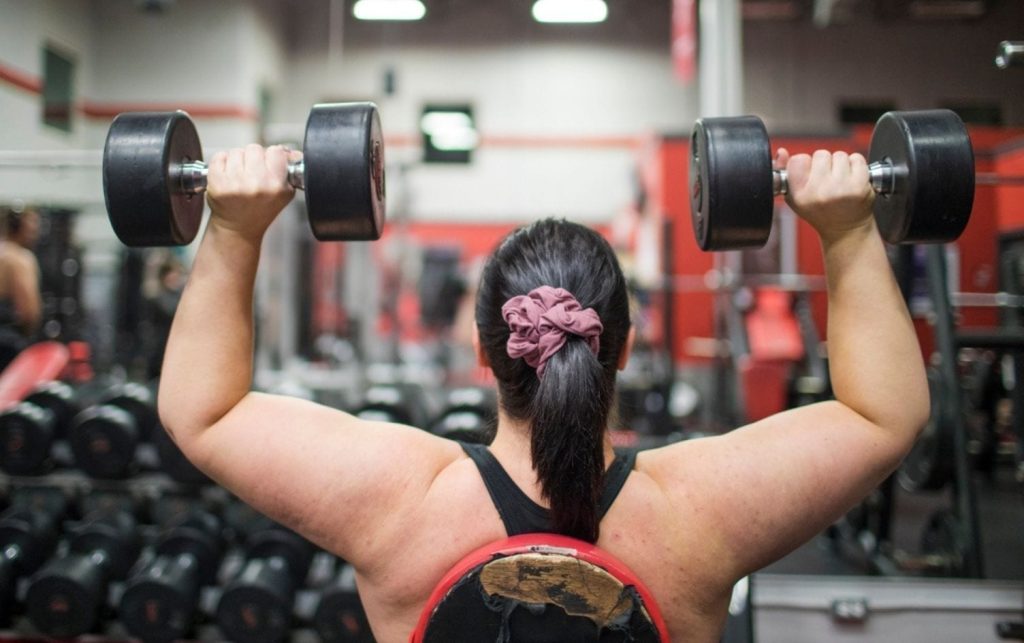Stepping into the gym after a long period of lethargy is both a struggle and a challenge, and you cannot escape not to wonder if you will gain weight when you start working out. When you start to work out after you’ve been inactive for some time, your body is finally moving, and changes will happen – it is natural.
So, will you gain weight when you start working out? Being a personal trainer, I always tell people who come into my gym that gaining weight is just a part of the process and they shouldn’t worry about it.
Keep reading as I will be getting deeper on this topic and what you can do to prevent gaining weight once you engage in hard workouts.

Will You Gain Weight When You Start Working Out?
If you want to know if you will gain weight when you start working out, I have some good and bad news for you.
The good news is that you will gain weight, but only temporarily. Whereas the bad news is that there are a lot of things that influence whether you’ll continue to gain weight or not, like your diet plan and your exercise regime.
Other factors that contribute to gaining weight when you’ve just started to work out include water retention, glycogen storage in muscles, calorie intake, specific health issues, and long periods of physical inactivity.
Gaining Weight While Working Out – Why Does It Happen?
Water retention
Since muscle-burning workouts cause water retention, gaining weight even after working out for several weeks or a month is a part of the muscle healing process. It’s normal for your weight to fluctuate about 5 pounds a month based on the hormone cycle and your diet.
Intense cardio sessions can cause an increase in blood volume almost immediately after the workout. The moment this happens, your kidneys begin to retain water during the exercise, responding to the dehydration by boosting blood value as a defense mechanism against future dehydration.
You must know that this is just water weight and not fat weight, so basically, it is just a healthy weight gain as it keeps the cells hydrated, which is essential for good performance and more endurance. With this in mind, you shouldn’t worry too much if gaining weight isn’t your goal.
Glycogen storage in muscles
Besides water retention, consistent training increases glycogen storage in your muscles, especially in muscles that are used constantly when working out, allowing you to only access energy from glycogen stores in those muscles.
How much glycogen you store can vary dramatically depending on how hard you are training and your carb intake.
This means that if you haven’t done legs in a while, you might notice some water weight gain in this body part, so when you use your legs to work out, your body won’t be able to access any glycogen stores from any other body parts like the lats or pecs.
Read more: How to Get Smaller Calves

Calorie intake
For you to have energy and strength to work out, your body needs fuel to generate new muscle mass tissue, so with this in mind, you’ll need to add more calories if you want to kick off any significant new growth. Your body composition will remain constant when you burn the same number of calories you consume.
It’s normal to gain fat or muscle if you start eating more calories than your body utilizes. Otherwise, you’ll lose weight if the calorie intake isn’t enough. If there is enough food to fuel growth, your body will naturally start to add muscle with the training. This is just some basic fitness and nutrition philosophy.
A long period without physical activity
Will you gain weight when you start working out after being inactive for some time? Well, it’s not unusual as your body goes through several changes from the first couple of months. What happens in your body is muscle hypertrophy from the high intensity of the new exercise activity.
Since your muscles have been working at a maximum force, you will experience an increase in muscle size which can seem like you’ve gained weight. Due to the inflammation in your body of your muscle fibers being damaged, your body begins a repair process.
Specific health issues
Even if you do everything right, every metabolism is different, so more factors are working in the background. For example, having a history of certain illnesses or if you have some chronic injury and you are using medications, the diet regime might not give you the expected weight outcome.
Stress is an important factor known to cause weight gain during the initial stages when your body starts to get active again after a longer period.
Essential Tips to Stop Gaining Weight While Working Out
Eat a balanced diet
Let’s be honest, the constant calorie intake calculating isn’t very practical, so if you are someone who prefers intuitive eating, my suggestion would be to increase the vegetable-to-carb ratio on your rest days, also trade some fatter cuts for leaner ones so when you have a fatter cut of meat lower the other fats in the meal a bit.
If you are using substantial protein powder, you can add some foods to balance them into a full meal. For instance, take a smoothie for breakfast with additional protein-rich foods like oats, bananas, spinach, berries, and milk instead of water.
Mix-up training programs
There are different strength training programs suitable for various fitness goals, so you should focus on choosing the one that’s appropriate for your muscle group and what you want to achieve.
If you don’t want your body mass to increase and keep your lean physique, then weight training is a must but not enough. You should mix up cross-training, adding cardio sessions like running. Yoga and pilates are also great ways to keep your body engaged.
Also read: How to Lose Belly Fat Overnight
Take pictures and measurements
It happens for people to underestimate the number of calories they buy while they exercise, so they tend to reward themselves with food and drinks for exercise. This is why you might notice gaining weight if you’ve been inaccurately tracking calories in and calorie out. Make sure to take pictures and measurements instead of just relying on the scale.
There should be small evidence in weight after two weeks, so if you want more accurate results, you should take measurements weekly.

